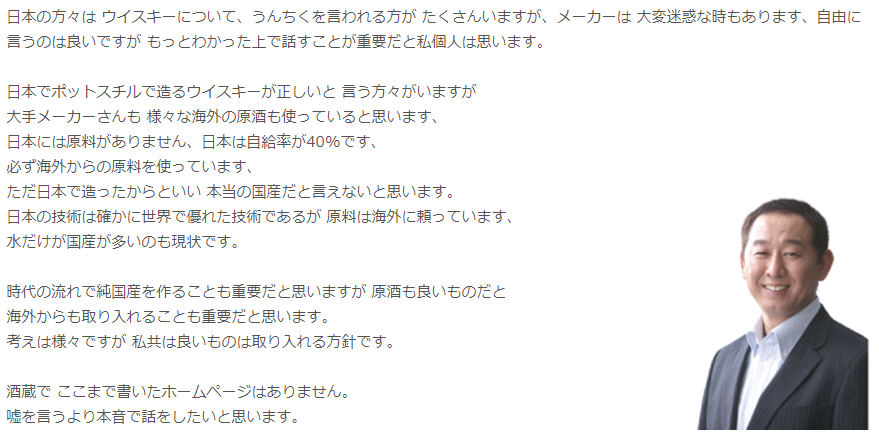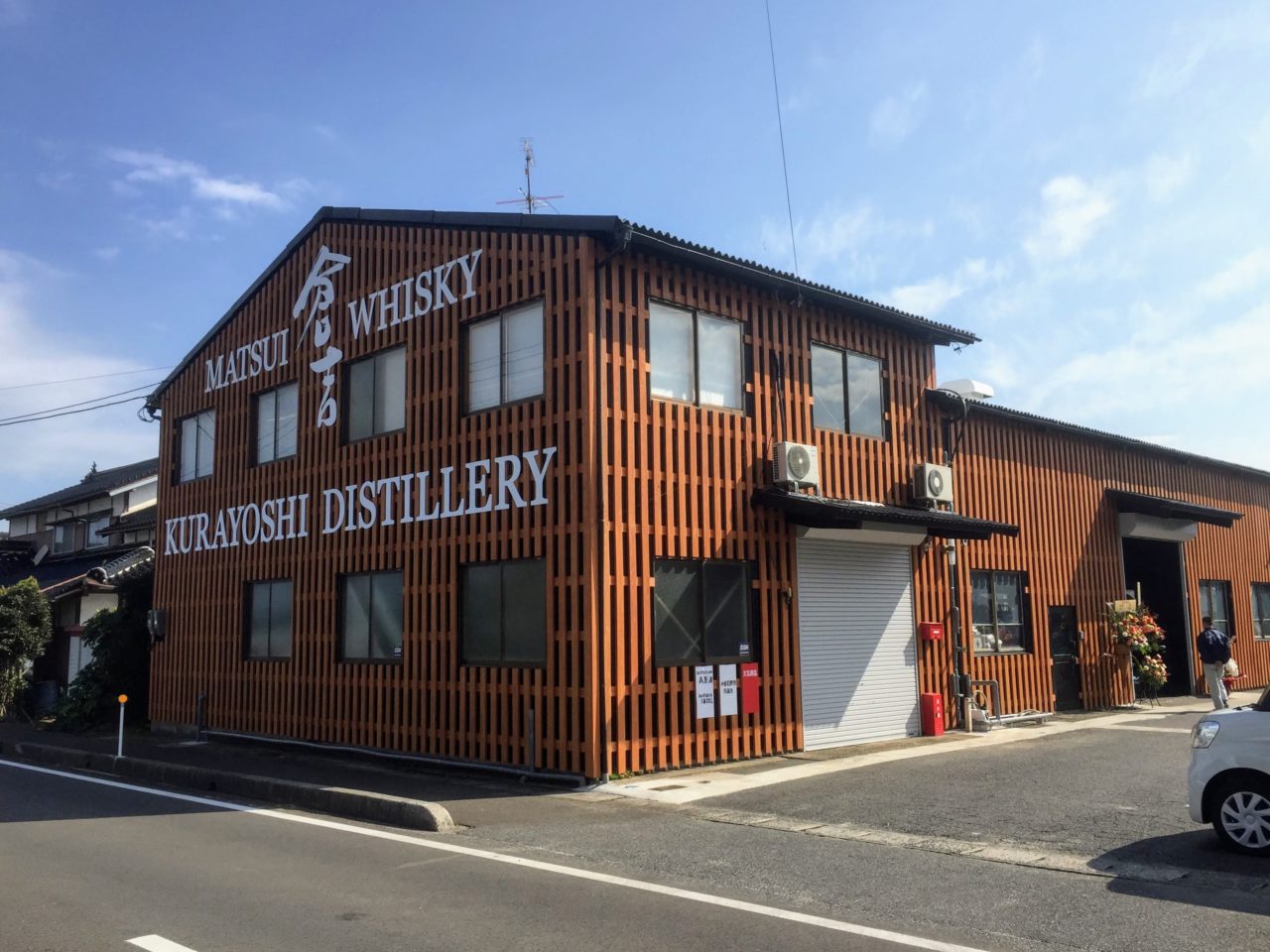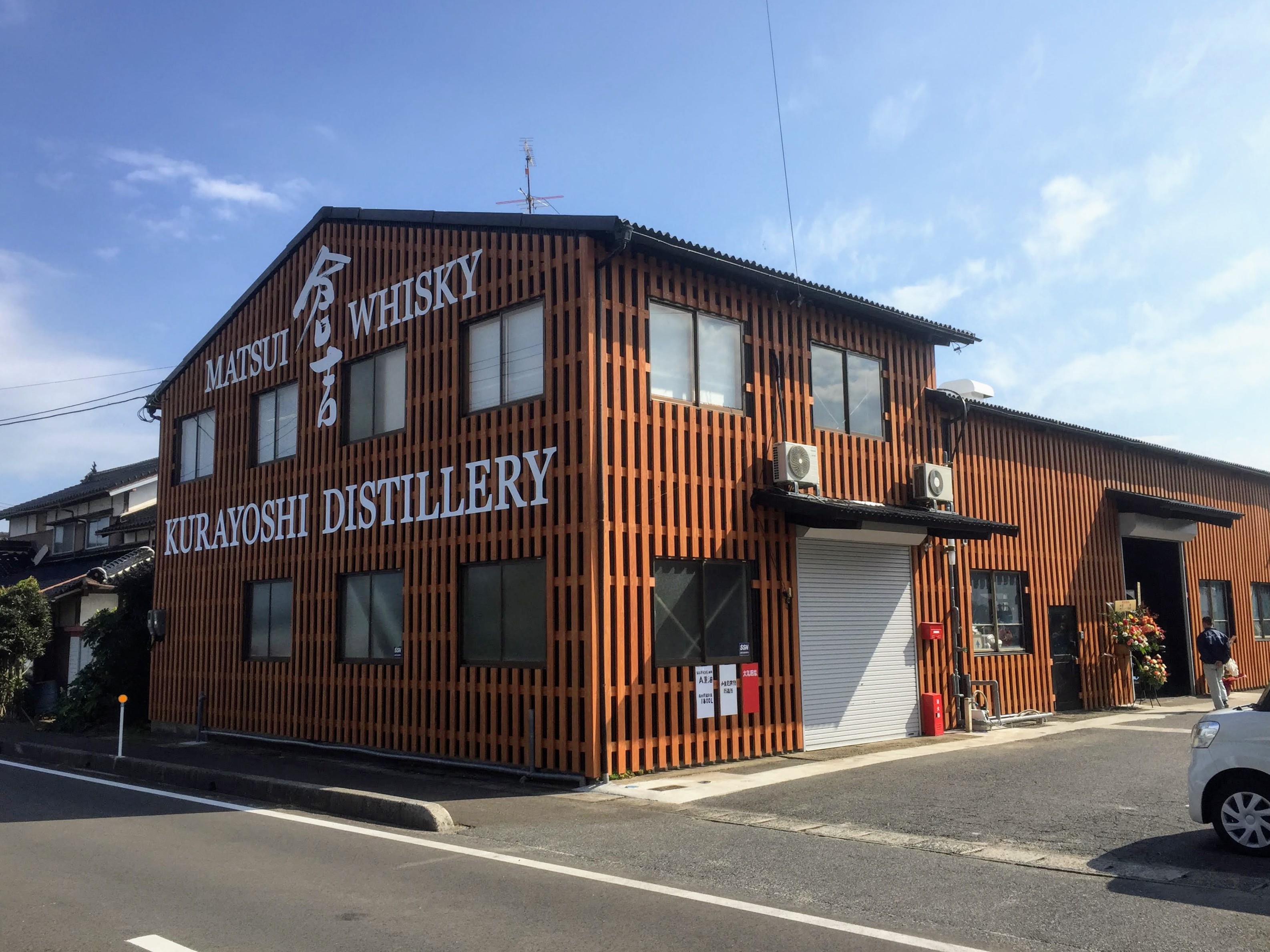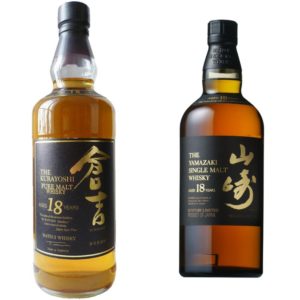Any regular drinker of Japanese whisky has heard about them. The infamous Matsui Shuzo. They’re behind the highly controversial Kurayoshi and Tottori brands of “Japanese whisky.” Japanese whisky is a term we must put in quotes when talking about this particular company. Why? At least in the case of those two brands, it’s not actually whisky distilled in Japan.
Matsui Shuzo: The Hard Sell
For many Japanese whisky fans, Matsui Shuzo has already earned a special place in hell. Obfuscation is one thing, but they have also been deceptive at times. The label design is pretty clearly a knock-off of those of real Japanese whiskies. They use the phrase “Made in Nippon” and make references to the Kurayoshi Distillery, as though that’s where the whisky in the bottle was distilled. You would have to be eagle-eyed to spot the fact that it doesn’t actually say “Distilled in Japan” anywhere on the bottle (outright lying on labels is illegal).
Then, some of their efforts deliberately target foreigners, particularly tourists, who are less likely to understand all of the intricacies of real vs. fake Japanese whisky. Perhaps they’ve heard somewhere that “Japanese whisky is popular” or whatever, and decide to have a look at the bottles at the airport before flying home. Kurayoshi’s English homepage, for example, features a “Greeting from the Distiller,” while the Japanese version of the same page simply has a “greeting from the staff.” In a world where releases from major Japanese whisky distilleries sell out in mere seconds, I don’t think I’ve ever seen Kurayoshi sold out anywhere.
Of course it’s also priced so that it appears to be affordable compared to, say, an equally aged Yamazaki. And often sitting right next to the (likely empty) space for Yamazaki on the shelf at duty free. I mean come on:
What does Japan think of Matsui Shuzo?
Yet, here in Japan, where consumers are better informed about Japanese whisky, Matsui Shuzo has somehow managed to be even more sinister.
This was spurred by an incident back in 2016. The latter paragraphs of an essay entitled “About Whisky” posted on the company’s homepage (since removed, but still available in the Wayback Machine) were viewed by some in the Japanese whisky world as a diatribe. The author says that many people in Japan like to “bestow their knowledge” of whisky upon whisky makers, and this is a “big pain in the ass for us makers.” He continues: “I personally think it’s important to have a better understanding before speaking up.” Later, the author turns to semantics. “You can’t really call [other Japanese whisky] ‘made in Japan’ since they’re using raw materials from overseas.”
In a country where customer service is typically paramount, this attack was obviously not well-received by the Japanese whisky drinking community.

Is Matsui Shuzo Turning a Corner?
Alright, so they’ve been a bit evil at times. But what company hasn’t these days? Is there any chance for redemption?
Matsui Shuzo has been making shochu since 1910, and the company acquired their first license to distill whisky in 2015. By the company’s own admission, they actually began distillation at the Kurayoshi Distillery only in 2017, initially with three 1000L pot stills. They have since expanded that facility, adding a 3000L and 5000L pot stills as well.
If that Facebook post is to be believed, this is effectively Matsui Shuzo admitting that they didn’t distill their own whisky prior to 2017. But they do now.
Making things more interesting, in July 2018, Matsui Shuzo obtained a second whisky distillation license: for their factory located in Baba, Tottori. This granting of this license by Japan’s National Tax Agency is a matter of public record, so there’s no real room for deception–at least as far as being licensed is concerned. I contacted Matsui Shuzo directly for clarification of the role Baba Factory will play in the future, but the response was pretty a corporate non-answer: “we may produce whisky there depending on demand.” Lame, sure, but I would expect a similar answer from any other company that only just got a license.
Of course, you could conclude this is all just a front. But I would guess that they’re actually serious about making their own whisky one day. If you’re going to lie about distilling whisky, why go through the trouble of getting another license for a facility that you also have to lie about?
On August 31 of this year, the company posted pictures of their (fully operational) Kurayoshi Distillery on their Facebook page. They have also reportedly been working towards making an all-Kurayoshi whisky, using local barley as we’ve seen from the Shizuoka Distillery, Akkeshi, and Chichibu. They even plan on eventually opening the Kurayoshi Distillery for public tours.
Further, just last month, the company introduced the “Matsui Whisky” brand. They are apparently calling it “sub-Japanese whisky” due to the fact that the malt is imported. I don’t have any other details about this whisky at the moment, but if the company’s product page is to be believed, it is distilled (at least partially) in Tottori. (Thanks for pointing this out Mel!)

How do they compare?
This isn’t a novel approach. Nearby Chugoku Jozo, famous for the Togouchi brand of poser Japanese whisky, is turning legit with their creation of the Sakurao Distillery. And the gin they’re making down there is damn good.
It’s absolutely worth noting that today’s “real” Japanese whiskies like Yamazaki and Yoichi themselves have roots in imitation whiskies. Historically speaking, Japanese whisky hasn’t actually needed to contain a lot of Japanese whisky. In fact, it wasn’t until 1968 that alcohol labeled as whisky in Japan was even legally required to contain whisky. Suntory and many other makers took full advantage of those loose whisky regulations for decades.
Matsui Shuzo remains Japanese Whisky Public Enemy No. 1. While that’s probably a reputation well-deserved, their actions over the last couple years look like they are at least trying to legitimatize to some extent. What do you think? Is this all smoke and mirrors, or will we eventually see a true Kurayoshi distilled whisky?
Hi there! I created and run nomunication.jp. I’ve lived in Tokyo since 2008, and I am a certified Shochu Kikisake-shi/Shochu Sommelier (焼酎唎酒師), Cocktail Professor (カクテル検定1級), and I hold Whisky Kentei Levels 3 and JW (ウイスキー検定3級・JW級). I also sit on the Executive Committees for the Tokyo Whisky & Spirits Competition and Japanese Whisky Day. Click here for more details about me and this site. Kampai!



Hi Richard,
Kurayoshi and matsui Shuzo won all the awards for Best Japanese Whisky In IWC 2019. Don’t they check the authenticity of whiskies ?
Thanks for your post! That means that Kurayoshi 12 years is fake japanese? Do you know if its a japanese distilled from another japanese distillery?